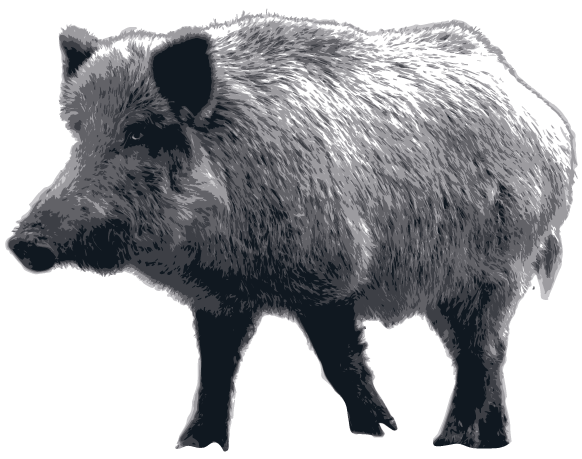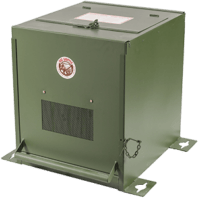

Read product label carefully and be certain to follow all label directions
1. Observe the area selected for treatment to identify where hog activity and trails are located
2. Do not allow livestock to graze on baited areas during baiting program
3. Position hog feeders in or near probable resting areas for hogs. From 1-3 feeders may be used per placement location, with feeders spaced no more than 10 ft apart in each cluster
a. Feeders must be equipped with heavy lids on bait compartments (minimum of 17 lb total lid weight)
b. Secure each feeder with T-posts or by tying to trees/shrubs to prevent hogs from tipping them over
4. Condition (train) hogs to eat from feeders for 1-3 weeks, using the following non-toxic feed options: (1) cracked or whole corn; (2) cracked or whole corn, soaked in water for 3-5 days until it has a noticeable odor; (3) cracked or whole corn treated with a commercially available hog attractant which includes scents of hog urine, fruit, or pet food; or (4) Kaput® Feral Hog Lure.
a. Load 25 to 50 lbs of the non-toxic feed into each feeder
b. Open feeder lid about 6 inches so hogs can access feed
c. Refill as needed
d. Failure to train hogs to eat from feeders will lead to POOR baiting results
5. Baiting can begin after hogs have been successfully conditioned
a. Remove all non-toxic feed from feeders
b. Add 25-50 lbs of Kaput® Feral Hog Bait in each feeder
c. CLOSE LID to prevent non-target animals from accessing bait
6. Monitor feeders every 2 – 4 days. Collect and dispose of any spilled bait, and replenish bait if appropriate
7. Return to the treatment site within 4 days after initial bait placement, and then at 2 – 4 day intervals, to inspect the site for dead or dying feral hogs
a. All carcasses found must be disposed of properly. Carcasses may be buried on site. Burial may minimize feral hog disease transmission to humans, domestic animals, and other wildlife.
b. If burial is not practical and other disposal methods are allowed by State and local authorities, carcasses may be disposed of by other methods.
c. Carcass searches must continue at least 2 weeks AFTER the removal of all bait from hog feeders
d. A dye in this product will impart a blue color to the fatty tissues of hogs that have eaten the bait
MAKE CERTAIN TO FOLLOW DETAILED LABEL INSTRUCTIONS
ON THE USE OF THIS PRODUCT



| Texas A&M Agrilife Extension Study | Safety Data Sheet | Product Brochure | Product Label |
|---|---|---|---|
| Download Wildlife Study | Download Safety Data Sheet | Download Brochure | Download Label |

